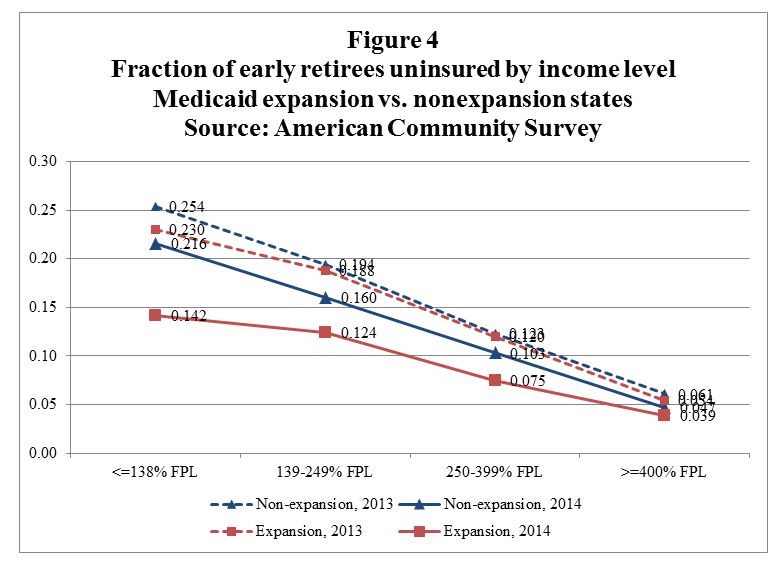By age 64, more than half of all workers are retired despite the fact that Medicare doesn’t kick in for most of them until age 65. The decline of employer-sponsored health insurance for retirees means that many people who make such a decision risk being uninsured. Beginning in 2014, the Affordable Care Act brought new insurance options to the scene, including private insurance through the marketplace and Medicaid expansion in some states.
Researchers Helen Levy, Thomas Buchmueller, and Sayeh Nikpay looked at whether early retirees took up these options in “Health Reform and Health Insurance Coverage of Early Retirees.” The study uses 2008-2014 data from the Census Bureau’s American Community Survey (ACS). The large sample allows the researchers to look at coverage changes for relatively smaller populations, such as low-income early retirees.
- Between 2013 and 2014, the fraction of early retirees without health insurance declined from 14.7 percent to 11.2 percent, reversing a trend toward increasing uninsurance in recent years.
- Gains in coverage among early retirees were driven by increases in both Medicaid and private, nongroup coverage.
- Gains in coverage were larger in states that implemented the Affordable Care Act’s Medicaid expansion in January 2014 than in states that did not.
- The gains in coverage disproportionately benefited low-income early retirees and therefore reduced the gradient in coverage with respect to income.
- There is no evidence of an acceleration of the decline in employer-sponsored coverage for early retirees, either overall or in states that expanded Medicaid.

Graphic source: “Health Reform and Health Insurance Coverage of Early Retirees.” FPL stands for federal poverty level.
Read the research brief: http://projects.isr.umich.edu/mrrc-archive/publications/briefs/pdf/rb345.pdf
Read the working paper: http://projects.isr.umich.edu/mrrc-archive/publications/papers/pdf/wp345.pdf
